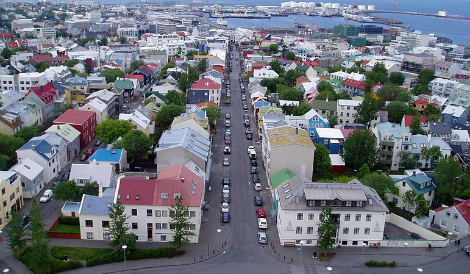A public-owned energy company that deals in geothermal and hydro power in Iceland’s capital city Reykjavik is finalizing plans to secure a 50 to 70 acre site outside of the city in the hope of luring a big-name data center operator to the country.
Reykjavik Energy CEO Bjarni Bjarnason said he believes a big name like Apple, Facebook or Microsoft, which wants a 20 to 25MW data center with access to geothermal power and free cooling, could help break the ice for Iceland’s burgeoning data center industry.
Iceland already has two large facilities on the island – Verne Global and Advania Data center (previously known as Thor) – but Invest in Iceland director Thordur Hilmarsson said the country wants to see more data center come in to make use of Iceland’s cheap energy.
The country only has a few major industries, aquaculture and fisheries being one, but now it wants to capitalize on its energy resources, which Iceland can sell on at a cheap price, but wants energy users to exist inside the country.
He said while the island may not serve those needing to be close to their customer, it could be an ideal site for locations needing redundancy, with a reliable power grid and redundant fiber-optic connections.
“We set up targets for Silicon Valley and other locations on the east coast of US and Northern Europe - Scandinavia, Germany and the UK. And we are targeting the CFO, not the CTO, as this should be a decision about cost” Hilmarsson said, adding that if the right buyer came through, a data center could be operating on the site within the next year.
Invest in Iceland project manager Einar Tomasson said Iceland had been in talks with Facebook before it chose its Lulea, Sweden facility, among other large investors.
“We had some issues here, with the volcano. We were talking to one executive of a big company, for example. He drew a volcano on a chart and said ‘you were way up the hill, but then the eruption came and you had to start the climb again because this has just change people’s mind set overnight,” Tomasson said.
“But now I think we are well on the way to re-establishing confidence in Iceland.”
The eruption at Eyjafjallajökull in 2010 only stopped transport for in day in Iceland, despite wide-spread disruption in other parts of Europe, where airlines in some cities were grounded aircraft for days due to the ash that blew over Europe.
Bjarnason said there are many parts of Iceland that are free from risk, including the new site location, which is far away from the volcano, and isn’t in an earthquake zone.
Reykjavik Energy plans to have about ten large data centers at the technical park – a move it said could help revitalise the country’s economy.
Iceland currently has 7% unemployment, and a highly skilled population – it had 2% unemployement before its crash.
Bjarnason said the local government said it will offer help for companies interested in investing, but the real pull will be the lower power costs associated with geothermal power, which Iceland has an abundance of.

